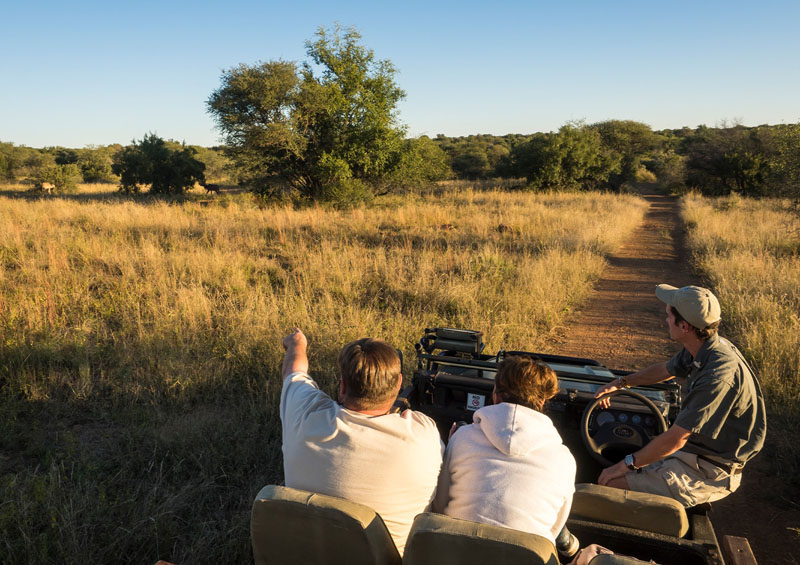What Are Conservation Fees?
Simply put, conservation fees are contributions collected by game lodges, private reserves, and national parks to help fund the protection and management of the incredible environments you visit. They are typically charged per person, per night, and are used exclusively for conservation efforts rather than profit. While these fees are sometimes mistaken for hidden charges, they are actually an essential part of sustainable tourism in South Africa. Without them, many of the natural wonders and extraordinary wildlife experiences guests enjoy would be at risk.Why Do Lodges Charge Conservation Fees?
South Africa’s game lodges and wildlife reserves are custodians of some of the planet’s most remarkable biodiversity. From the deep roar of a lion at dawn to the delicate flutter of a butterfly, these landscapes are living, breathing ecosystems that require careful stewardship to survive. Here are some key reasons why conservation fees are necessary:- Wildlife Protection: Poaching, habitat loss, and human-wildlife conflict threaten many species, including the iconic Big Five. Conservation fees help fund anti-poaching units, veterinary care, and wildlife monitoring programmes to ensure animals are safe and populations are healthy.
- Habitat Management: Maintaining the bushveld is a constant, hands-on process. Funds go towards habitat restoration, removal of invasive species, controlled burns, and water management to keep the ecosystem in balance.
- Community Involvement: Many reserves operate in partnership with neighbouring communities, providing jobs and supporting local schools, clinics, and small businesses. Conservation fees contribute to these social development projects, helping to create a positive relationship between people and wildlife.
- Research and Education: Scientific research is crucial for understanding and protecting wildlife. Fees help support research projects, student internships, and educational programmes that inspire the next generation of conservationists.
- Infrastructure and Security: From maintaining fencing to hiring trained security staff, reserves must invest in infrastructure to keep both wildlife and visitors safe.
How Much Are Conservation Fees?
The amount of conservation fees can vary depending on the lodge, the reserve, and sometimes even the time of year. Here’s a general overview of what you might expect:- Private Game Reserves: Fees typically range from R100 to R600 per person per night, though some exclusive lodges may charge more. For example, the Sabi Sand Reserve currently asks R310 per person per night, whilst Madikwe Game Reserve requests R190 per adult per night and R95 per child. Some ultra-luxury properties may include these fees in their rates, so always check with your lodge or booking agent.
- National Parks: South Africa’s national parks, managed by SANParks, also levy conservation fees. For popular parks like Kruger, the fee is R460 per adult per day for international visitors, and R115 per adult for South African citizens and residents. Children’s rates and discounts for longer stays may apply.
- Special Circumstances: Some reserves offer discounted or free conservation fees for children under a certain age, senior citizens, or local community members.
How Are Conservation Fees Spent?
Guests often wonder where their money goes once they’ve paid a conservation fee. Transparency is key, and most reputable reserves are happy to share details about how funds are used. Here’s a more detailed look:- Anti-Poaching Initiatives: A significant portion of conservation fees funds anti-poaching units. These brave teams patrol the bush, use cutting-edge technology like drones and motion-activated cameras, and work closely with law enforcement to combat illegal hunting and trafficking.
- Wildlife Health: Conservation fees support veterinary care for injured or sick animals, as well as translocation and breeding programmes for endangered species. This can include everything from rhino horn trimming (a non-lethal deterrent to poachers) to the reintroduction of cheetahs and wild dogs.
- Environmental Monitoring: Regular monitoring of vegetation, water, and soil quality is essential for maintaining ecosystem health. Funds help pay for ecologists, equipment, and analytical work that guides management strategies.
- Community Empowerment: By supporting local employment and funding education or healthcare facilities, conservation fees help create a sense of ownership among neighbouring communities. When people benefit from wildlife tourism, they are more likely to protect it.
- Infrastructure Upkeep: Maintaining roads, signage, fences, and visitor facilities ensures a safe and comfortable experience for guests while also protecting wildlife from unwanted incursions or accidents.
- Education and Awareness: Many reserves run schools, host workshops, and provide scholarships for young people interested in conservation. These programmes are funded in part by conservation fees.


